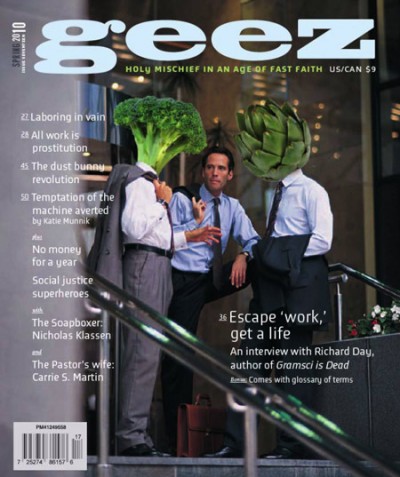Not Sophie’s Choice
I come from a long line of working class immigrants.
The women bore and buried children, farmed alongside their husbands, ingeniously made every penny count, worked in factories and cleaned office buildings. The men worked in coal mines, drove taxicabs and newspaper delivery trucks and fought the nation’s wars. Their stories informed my childhood — teaching me the value of hard work and worker solidarity.
I have always felt a special affinity with my great grandmother Sophie who emigrated from Poland to the U.S. at the turn of the 20th century and, along with over 400 other women, lost her husband in a mining disaster. She successfully supported her three children by scrubbing floors in the company offices. Sophie had an immigrant’s desire to rise above her circumstances to ensure that those who followed her could “make something” of themselves. She worked with her hands so that I would not have to do so.
As a curious child my ambition was to become an educated woman. Getting a series of university degrees was my ticket to the work privileged by modern Western culture with social and financial rewards. I became that educated woman and found intellectually and spiritually challenging work in health care as an educator, manager, policy analyst and hospice chaplain.
And then I emigrated from the U. S. with my Canadian partner. I naively expected that the only thing between me and a job in my field was a work permit. But once I had it in hand, I was unable to even get an interview for the kind of work I had done for years in the U.S. I was just another immigrant lacking the vocational Holy Grail – Canadian experience
My experience as a housekeeper became an exercise of mind, body and spirit.
I had been supporting myself since I was 17 and my inability to find meaningful and financially rewarding work left me feeling embarrassed, ashamed and fearful. I had let down those I loved and who were proud of my achievements. The image I have of myself during this dark time is being trapped at the bottom of an alchemist’s crucible – painfully watching as long-held assumptions about who I was dissipated like smoke from the transforming fire.
The poet Theodore Roethke reminds us that “in a dark time the eye begins to see.” As the smoke cleared and the light eventually returned, I emerged from the crucible humbled and disoriented but determined to accept with grace the fact that my vocational life had been profoundly and permanently changed. I could continue to mourn shattered illusions or embrace life as a free agent. I chose to do the latter by becoming a free-lance housekeeper for senior citizens.
My experience as a housekeeper for elderly people became a kind of spiritual Pilates; an exercise of mind, body and spirit enabling me to re-connect with and strengthen my core. The process of shining glass and porcelain, lovingly dusting the mementos of an old man’s long-dead wife, vacuuming rugs, cleaning toilets and making beds gave me an immediate sense of accomplishment – something I rarely felt in most of work I had done previously.
While I was doing the “woman’s work” so often devalued in our society, I did not experience it as mindless drudgery. In fact, it became an exercise in mindfulness – engaging in toilet cleaning meditation or vacuuming meditation. For example, many tasks provided me with a heightened awareness of my relationship with metaphorical and physical waste. I chose to use baking soda and vinegar as primary cleansers and the act of sending water down the drain free from harsh and dangerous chemicals became a prayer honouring my health, that of my fellow creatures and the Earth itself.
My clients were elders who wanted to stay in their homes as long as they could. While I was clearly being of service to them, I was not servile. We entered into a healthy partnership in which each of us gave and received with mutual trust and respect. They received the fruits of my labour as well as my compassion, and I received a daily wage and the opportunity to learn valuable lessons about growing old. While I no longer work as a housekeeper, I have come to treasure that time as one of the most spiritually productive periods of my life.
Though it may not have been Sophie’s choice to have her great granddaughter scrubbing floors, I often felt very close to her when doing so. Though our circumstances as immigrant women are far from comparable, I believe I honour her legacy each time I remember that “making something” of oneself has nothing to do with the type of work we do but in doing the best we can with what we have been given, and doing it with pride and dignity.
Sandra Malasky lives in Peterborough, Ontario.
Epilogue: Malasky now coordinates home care services at the same non-profit agency where she used to get clients as a house cleaner. She works part-time, at her preference. When Geez asked her how she felt about her current job, she wrote: “Yes, doors have opened to me. In all honesty, however, I am actually no happier or more fulfilled than when I was doing housekeeping. I no longer think in terms of having ‘a field’ – I just want work that helps support me and my family and gives me a chance to be of service.”



Sorry, comments are closed.